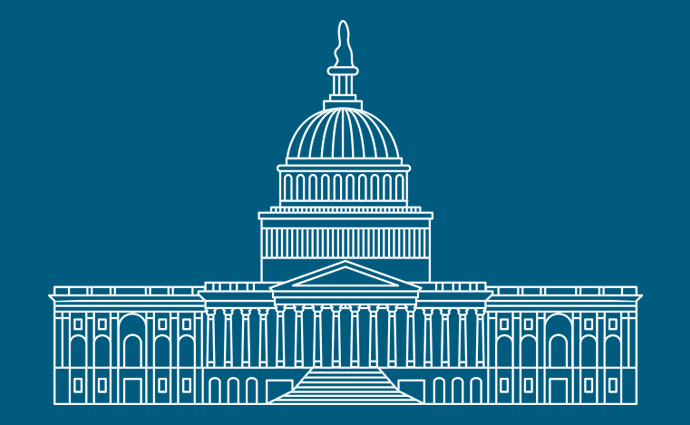Bipartisan Bill Aims to Halt Site-Neutral Payments to Hospitals
The PACE Act seeks to stop a new site-neutral payment policy that reduces Medicare reimbursement for hospital outpatient clinic services by up to 60 percent.

Source: Thinkstock
- Two House lawmakers are hoping a new bipartisan bill will stop CMS from enforcing a new site-neutral payment policy, which reduces Medicare reimbursement to hospitals operating off-site clinics.
Representatives Derek Kilmer (D-WA) and Elise Stefanik (R-NY) introduced the Protecting Local Access to Care for Everyone (PLACE) Act (HR 2552) on May 9 in an effort to help hospitals provide affordable care through outpatient clinics.
“The Administration has put forward a policy that will hurt access to care in rural areas and kill jobs,” Representative Kilmer states in a press release. “Hospitals should be encouraged to bring their services closer to the people they care for, not be penalized for it. That’s why we’ve introduced bipartisan legislation to ensure that regional hospitals, like Olympic Medical Center, can continue to make healthcare more accessible to more people.”
The new site-neutral payment policy from CMS is slated to reduce Medicare reimbursement by up to 60 percent for multi-campus regional hospitals like Olympic Medical Center in Washington. These facilities provide outpatient services through a network of clinics that aim to make care more accessible to patients.
However, CMS argues that site-neutral payments for hospital clinic services will lower costs for the most commonly billed services under Medicare’s Outpatient Prospective Payment System (OPPS). The OPPS reimburses hospitals a higher rate for the same services that could have been safely delivered in a physician’s office that is paid under the Physician Fee Schedule.
CMS Administrator Seema Verma argues that the new site-neutral payment policy “advances competition by creating a level playing field for providers so they can compete for patients on the basis of quality and care.”
The site-neutral payments for clinic visits also remove “unnecessary and inefficient payment differences so patients can have more affordable choices and options,” she said when announcing the policy.
CMS estimates that the site-neutral payment policy will reduce Medicare spending by $380 million in 2019, which is the first year of implementation.
However, the House lawmakers contend that site-neutral payments are leading to hospital financial challenges.
“My district is home to many regional hospitals that are currently struggling under CMS’ new policy,” Representative Stefanik (R-NY) says in the release. “Reducing Medicare reimbursements for these regional hospitals will result in the loss of a principal source of primary care for North Country families. This bipartisan legislation would prevent the CMS policy from being enacted so that rural community hospitals can continue to provide high quality, accessible healthcare to their patients.”
In addition to introducing the PLACE Act, the House Appropriations Committee also recently voted to include in the Labor-HHS Appropriations bill language authored by Representative Kilmer that voices concern about the site-neutral payment policy.
The committee advises CMS to account for the potential impact site-neutral payments will have on sole community hospitals and hospitals located in health professional shortage areas.
“I’m also pleased that language was included in the Appropriations bill this week to direct the agency to examine how this new policy will impact sole community healthcare providers,” Representative Kilmer states. “This policy is a real problem, particularly in rural areas where we already face a shortage of qualified care providers. It’s time to fix this.”
New research shows hospital outpatient department clinics treat poorer and sicker Medicare patients compared to ambulatory surgical centers, which receive lower reimbursement rates under the Physician Fee Schedule. Medicare patients receiving care in the hospital clinics are more likely to be older, dually eligible for Medicare and Medicaid, live in lower-income areas, suffer from more severe chronic conditions, and have been previously hospitalized or cared for in an emergency department.
Resources are already scarce for rural hospitals operating clinics that treat some of the most vulnerable patient populations, Representative Kilmer explains. If left in place, the site-neutral payment policy will reduce Medicare reimbursement for patients treated at Olympic Medical Center by approximately $47 million over the next decade.
The hospital told the House lawmaker that it would have used the revenue from clinic services to upgrade medical equipment or hire additional providers.
The American Hospital Association (AHA) and the Federation of American Hospitals (FAH) recently supported the PLACE Act.
The AHA is currently suing HHS over the site-neutral payment policy alongside the Association of American Medical Colleges (AAMC) and their member hospitals. Thirty-eight hospitals also filed a separate lawsuit against HHS challenging the Medicare reimbursement cuts.
